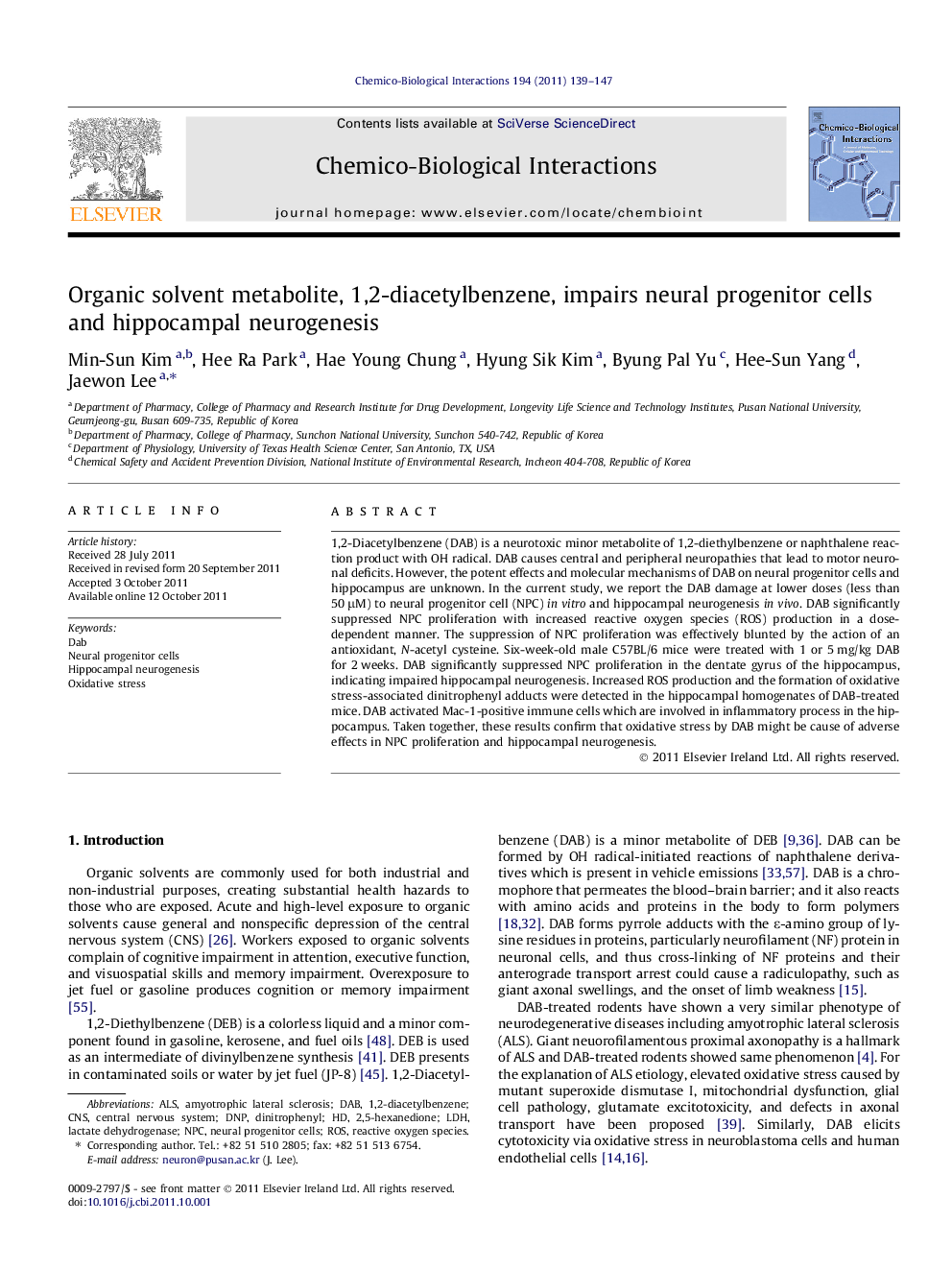| Article ID | Journal | Published Year | Pages | File Type |
|---|---|---|---|---|
| 2580880 | Chemico-Biological Interactions | 2011 | 9 Pages |
1,2-Diacetylbenzene (DAB) is a neurotoxic minor metabolite of 1,2-diethylbenzene or naphthalene reaction product with OH radical. DAB causes central and peripheral neuropathies that lead to motor neuronal deficits. However, the potent effects and molecular mechanisms of DAB on neural progenitor cells and hippocampus are unknown. In the current study, we report the DAB damage at lower doses (less than 50 μM) to neural progenitor cell (NPC) invitro and hippocampal neurogenesis invivo. DAB significantly suppressed NPC proliferation with increased reactive oxygen species (ROS) production in a dose-dependent manner. The suppression of NPC proliferation was effectively blunted by the action of an antioxidant, N-acetyl cysteine. Six-week-old male C57BL/6 mice were treated with 1 or 5 mg/kg DAB for 2 weeks. DAB significantly suppressed NPC proliferation in the dentate gyrus of the hippocampus, indicating impaired hippocampal neurogenesis. Increased ROS production and the formation of oxidative stress-associated dinitrophenyl adducts were detected in the hippocampal homogenates of DAB-treated mice. DAB activated Mac-1-positive immune cells which are involved in inflammatory process in the hippocampus. Taken together, these results confirm that oxidative stress by DAB might be cause of adverse effects in NPC proliferation and hippocampal neurogenesis.
► DAB produced ROS in NPC and hippocampus. ► DAB inhibited NPC proliferation. ► DAB impaired hippocampal neurogenesis. ► DAB produced protein adducts and induced microglial activation in hippocampus.
